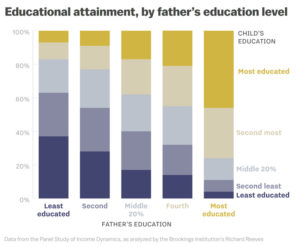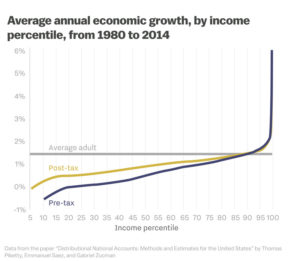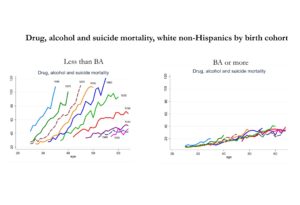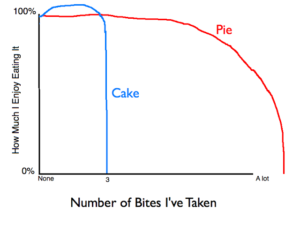Before you start to think that this will all be fun and games, I should tell you that sometimes things are going to get a bit uncomfortable. We’ll get through it together.
This post will be a feast of copy/paste because over the past week I have encountered some staggering facts about life in these modern United States, and I think more eyes should be on this. The first few items come from a Vox article by Alvin Chang about the challenges poor (economically) students face in higher education.
The data, from the Brookings Institution’s Richard Reeves, shows that your educational attainment is largely dependent on how much education your parents had. For all of the proclamations of America as a land of opportunity, it’s exceedingly hard to move up the ladder.
And things aren’t getting better. While more Americans are going to college as a whole, the gap between the affluent and poor has widened — and the value of a college degree is declining.
It starts in high school, where poor kids are less likely to earn a high school diploma than their richer peers. And after high school, research from Martha Bailey and Susan Dynarski shows that there’s a widening gap between the poor and affluent when it comes to enrolling in a four-year college.
Have a college degree? Thank Dad, I guess:


But just making it to college might not be enough for many first generation students.
But there’s also something about the American college environment that betrays students from lower- and working-class backgrounds.
Some of it is financial, but there’s something else going on — something that is perpetuated by the beliefs and values of upper-middle class people. This ranges from big-picture things, like what we think the purpose of college is, to more mundane things, like our eating or vacationing habits. And when mixed with this country’s imprecise way of talking about class, it creates a toxic environment that stunts the performances of students who are trying to climb the social class ladder.
In other words, the very way we think about college makes it a finishing school for people from affluent families — and a glass ceiling for everyone else.
I was a first generation student, but attended college only after leaving the Army, and with a generous (or what I thought to be generous) stipend courtesy Uncle Sam. Even so, I felt something akin to imposter syndrome, but more as if everyone else was in on something that I didn’t know about. Imagine how difficult it must be for a rural kid with a weird accent to navigate college. I swear I am not making this up, but I encountered a very bright young woman from a very rural area who was completely flummoxed by the controls in an elevator car; she’d simply never encountered an elevator before. There are probably scores of other hurdles these young people need to clear that we cannot even see.
And then there’s how we do college. Chang reports that first generation students come to college hoping to better themselves, but also to improve their families’ situations and give back to their communities, whereas continuing generation (and therefore more affluent) students want to explore things that interest them as well as develop new interests and get to better know and understand the world. Which leads me to this not terribly surprising finding:

(Sorry for the blurry image, bottom line: those who join frats do worse academically, but increase their earning potential post-college.)
But it’s cool, a rising tide lifts all boats, right? Not so fast, pal:

To quote Mel Brooks: “It’s good to be duh king.”
But even if we don’t go to college, we can still live long, happy, prosperous lives, right? Well, sort of. Unless you’re a white male.

And with that, I close. I’ll be back in the near future with something happier, I promise.










